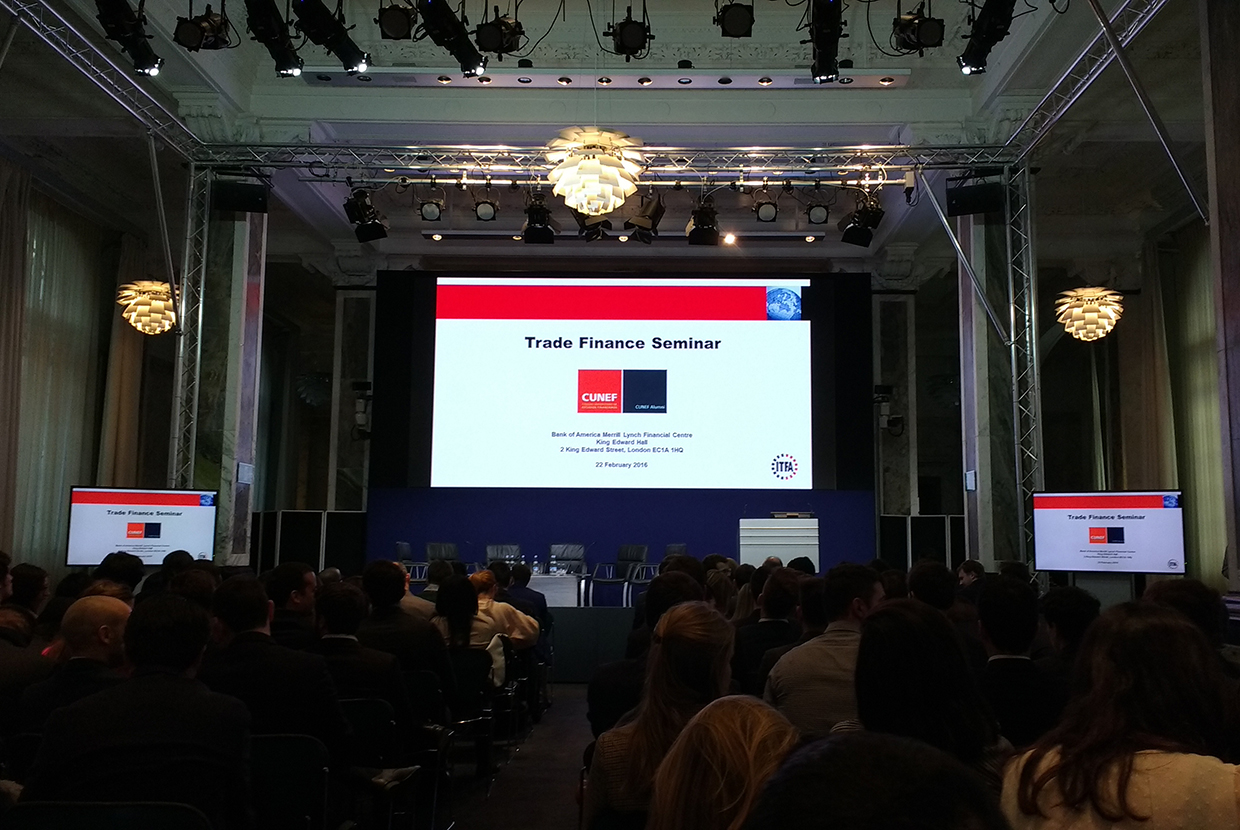A cohort of almost 100 international finance students from Madrid’s University College for Financial Studies (CUNEF) has shown keen interest in fintech developments in the trade finance space.
At a seminar organised by the International Trade and Forfaiting Association (ITFA) and Bank of America Merrill Lynch (BofAML) in London, the Master’s students were treated to a crash course in trade finance and global transaction banking to stimulate their interest for a career in the sector.
The questions that followed the lecture given by Paul Coles, BofAML head of trade risk distribution, global transaction services, Emea and head of market practice at ITFA, revealed a keen interest for financial services technologies such as blockchain and digital currencies, and their applications for trade finance, for instance in supply chain finance.
Other questions touched upon more political issues, from the consequence of the referendum on the UK membership in the European Union and the Transatlantic Trade and Investment Partnership (TTIP), to Libor setting practices, and Basel III.
People skills, creativity, open-mindedness and common sense are talents that are increasingly useful for banking nowadays.
A final question, more directly related to the students’ futures, asked a panel of trade finance experts what skills are needed for a career in the industry. The panel included: Chris Hall, head of trade asset management at Lloyds Bank and head of ITFA’s Young Professionals network; Johanna Wissing, Barclays vice-president, trade finance syndications; Baki Naimov, head of global forfaiting and EM loan trading at Credit Europe Bank; Gustavo Azevedo, senior analyst, at Banco Itau BBA International; Sean Edwards, SMBCE head of legal and ITFA chairman, and Zeyno De Vries-Davutoglu, head of bank relations, Credit Europe Bank, and head of education at ITFA. According to them, a certain degree of trade knowledge and languages are important, but also people skills, creativity, open-mindedness and common sense are talents that are increasingly useful for banking nowadays.
The students were visiting London for a week to better understand companies’ internationalisation strategies. As part of their Master’s, they can choose to specialise in either financial management, corporate finance, banking and management of financial entities, stock market and investment management, international finance and business risk management. Those who undertake a major in corporate finance or international finance study specific trade and export finance subjects.
Their visit provided a good outreach opportunity for ITFA, as the organisation has been looking for ways to make trade finance more accessible and attractive to young people, whom the industry needs to satisfy a skills gap and a demand for young talent. Reaching out to universities was one of the strategies discussed at the latest ITFA Young Professional roundtable to be featured in GTR’s March/April issue.







